
Artist George Catlin’s remarkable tours of Western North America in the 1830s and 1840s resulted in an important portfolio of Great Plains tribal cultural history, including a series of paintings of bison hunts, including his 1832 Buffalo Hunt, Surround.
The great wild bison herds that once ranged from Canada to Texas had a significant impact on the people and landscape of the West. Their annual migrations churned the soil as they took advantage of natural grasslands. The native people of the region followed these herds as a source of food. They utilized every part of the animals, often referred to as buffalos, by processing hides for lodges, clothing and moccasins. They turned bison bones into tools and used the animals’ sinew to make thread or binding for attaching tips to arrows to use in hunting or for protection.
When the Northern Boundary Survey worked its way from the Great Lakes to the Rocky Mountains from 1872 to 1874, bison were often encountered. In his report of February 14, 1877, Maj. William Twining, who led the survey team, wrote of the area known as Three Buttes or the Sweet Grass Hills of present Montana, saying they “are the center of the feeding-ground of the great northern herd of buffaloes.” He added, “This herd, which ranges from the Missouri River north to the Saskatchewan, made its appearance, going south, about the last of August. The number of animals is beyond all estimation. Looking at the front of the herd from an elevation of 1,800 feet above the plains, I was unable to see the end in either direction.”
Traveling on the fringes of the immense herd were “Sioux, Assiniboines, Gros Ventres of the prairie, and Blackfeet,” Twining wrote.
This story is from the June 2020 edition of True West.
Start your 7-day Magzter GOLD free trial to access thousands of curated premium stories, and 9,000+ magazines and newspapers.
Already a subscriber ? Sign In
This story is from the June 2020 edition of True West.
Start your 7-day Magzter GOLD free trial to access thousands of curated premium stories, and 9,000+ magazines and newspapers.
Already a subscriber? Sign In
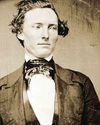
FIREARMS COLT WALKER 47
THE LEGENDARY HANDGUN THAT REALLY WON THE WEST
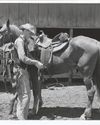
HERITAGE TRAVE
THE AMERICAN WEST IN ALL ITS GLORY OUR ANNUAL FAVORITES LIST CELEBRATES DESTINATIONS ACROSS THE WESTERN UNITED STATES.
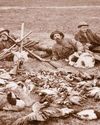
Wild Turkey, and Not the Drinkin' Kind
The actual bird was a favorite of pioneers.
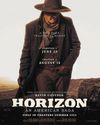
THE PASSION PROJECTS OF THE MODERN WESTERN
A YEAR OF UNDERRATED EXCELLENCE
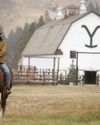
WESTERN BOOKS THEN AND NOW
THE STATE OF WESTERN HISTORY AND FICTION PUBLISHING IN 2024 IS ONE OF GRIT AND DETERMINATION.
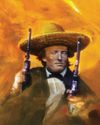
SAMUEL WALKER VALIANT WARRIOR
While a prisoner at the castle of Perote, Walker was put to work raising a flagpole. At the bottom of the hole, Walker placed a Yankee dime, vowing to someday come back and retrieve it, at the same time exacting revenge on his Mexican captors. In the summer of 1847, when Walker's mounted riflemen returned and routed Santa Anna's guerillas, the young captain kept his promise and got his dime back.
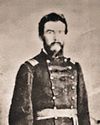
THE BATTLE OF CENTRALIA
ON September 27, 1864, Bloody Bill Anderson and about 80 men took over the small railroad village of Centralia, looting stores and discovering a barrel of whiskey that they hauled out into the street. Wild enough when sober, they soon were roaring drunk.
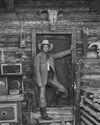
THE MAN WHO SHOOTS THE WEST
Jay Dusard is a living American photographer who has made Arizona his home for over 60 years, seeing it first in 1960 on a visit, moving here for good in 1963.
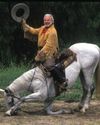
A TRUE WESTERNER INDEED PHIL SPANGENBERGER 1940-2024
Spangenberger had Nevada trained to bow by the legendary horse trainer, Glenn Randall, who trained Roy Rogers' Trigger, Gene Autry's Champion, Rex Allen's Koko and the Ben Hur chariot horses, among other great equines.

Where Did the Loot Go? - This is one of those find the money stories. And it's one that has attracted treasure hunters for more than 150 years.
Whatever happened to the $97,000 from the Reno Gang's last heist? Up to a dozen members of the Reno Gang stopped a Jeffersonville, Madison and Indianapolis train at a watering station in southern Indiana. The outlaws had prior intelligence about its main load: express car safes held about $97,000 in government bonds and notes. In the process of the job, one of the crew was killed and two others hurt. The gang made a clean getaway with the loot.